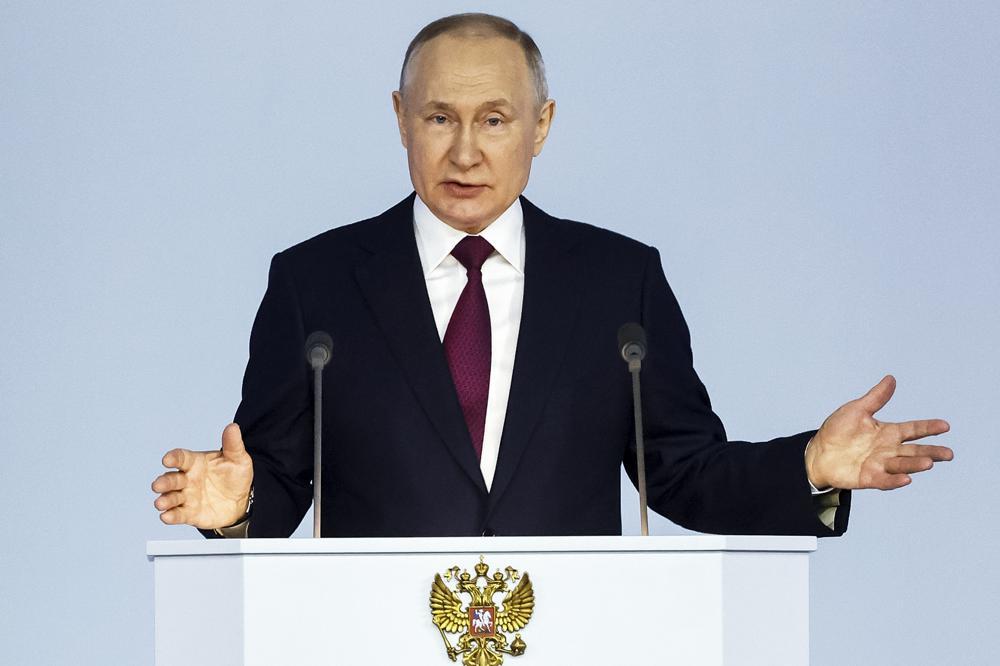
By Brian Ly | Staff Writer
As of March 9, fighting in Ukraine has centered around the eastern city of Bakhmut as civilians flee the besieged city. While continued missile shellings and casualties rise, the majority of the international community has shown continued support for Ukraine’s resistance and Russia has made moves to sever treaties as a protest of Ukrainian supporting countries, withdrawing from the last remaining United States-Russia arms control treaty, New START (Strategic Arms Rejection Treaty).
Bakhmut is located in the Donetsk region and has been a contested city since last summer due to being a gateway to the deeper parts of the Donetsk region. If the Russian military were able to gain control of the city, it would be their first major victory in half a year, and could allow for a strategic artillery and mortar zone to bombard nearby industrial towns such as Kostiantynivka.
In Bakhmut, approximately 4,500 civilians remain in the city, as evacuations have been difficult with missile strikes in the area. Civilian casualties continue to be reported throughout the country, and as of Feb. 26, the Office of the United Nations High Commissioner for Human Rights has verified at least 8,000 civilian or non-armed individual deaths with the estimation that the total toll is higher than reported.
Both sides of the conflict have faced major ammunition shortages.
“The situation in Bakhmut is very difficult now. It is much worse than officially reported,” a soldier who remained anonymous told CNN on Feb. 28. “Especially in the northern direction, where the [Russians] have made the biggest advance between Berkhivka and Yahidne.”
Russia has begun to gain ground as the mercenary Wagner force leads the offensive to encircle the city. Yevgeny Prigozhin, the oligarch who controls the Wagner force, has made open complaints of the lack of support from the Russian government, warning that the Russian frontline will collapse if his forces were to retreat.
The intensified attack on Bakhmut has strengthened foreign support from the North Atlantic Treaty Organization (NATO), especially from the United States and Germany.
The United States announced a $400 million military aid package in ammunition on March 3. Since the invasion began on Feb. 24, 2022, the U.S has sent more than $30 billion in military supplies.
The German armaments company Rheinmetall is planning on sending Leopard 2 tanks, and is seeking to buy 96 Leopard 1 tanks from Swiss defense firm Ruag to send to Ukraine. The company is also in negotiations to build a tank factory in the country according to the Rheinische Post.
German Chancellor Olaf Scholz and other European Union officials have also explicitly warned China that any arms provided to Russia would result in heavy economic sanctions.
Russian President Vladimir Putin announced on Feb. 21 in his state-of-the-nation address that the country would be suspending their participation in the New START treaty, citing U.S support of Ukraine and claims that the U.S and its NATO allies are working towards the destruction of Russia.
The agreement, which was signed by the former president Barack Obama in 2010 and took effect in 2011, introduced required communications on the status of nuclear arsenals, regular on-site inspections, and a cap of how many deployed and non-deployed warheads each country was allowed to keep.
The withdrawal from the treaty will have immediate effect on U.S visibility of Russian nuclear activities, though the Russian Foreign Ministry stated the country would continue to abide by the cap limit. Information of test launches will still be exchanged due to prior agreements, but Russia will no longer allow the U.S. to inspect military sites.
